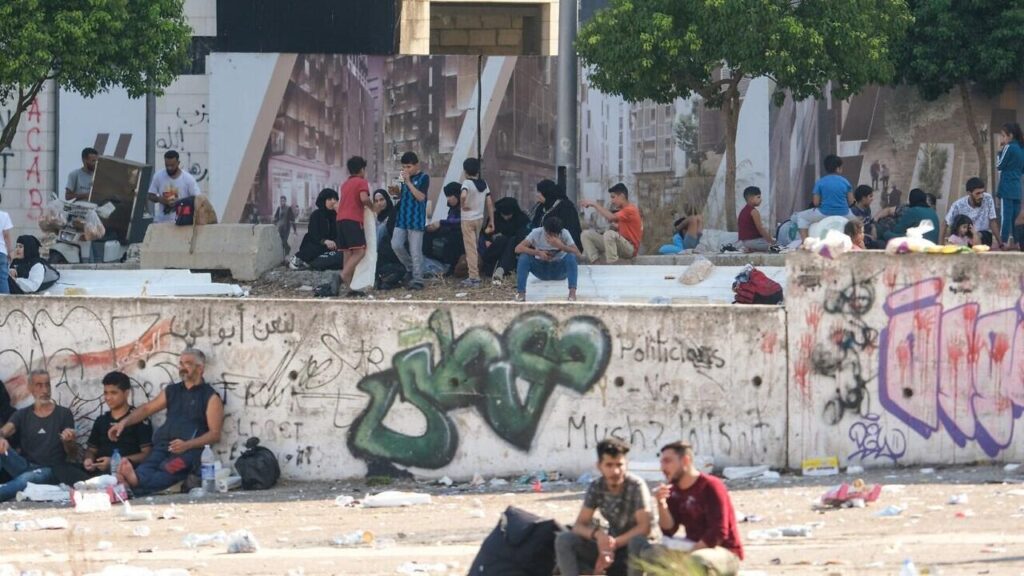In recent days, Lebanon has faced a significant humanitarian crisis as a result of extensive Israeli airstrikes, with caretaker Prime Minister Najib Mikati estimating that up to one million people could be displaced. During an emergency cabinet meeting, Mikati emphasized the scale of the situation, noting that this could represent the largest mass displacement in Lebanon’s history. The caretaker Environment Minister, Nasser Yassin, corroborated Mikati’s assessment by revealing that approximately 250,000 individuals have already taken refuge in both formal and informal shelters. However, he cautioned that the actual number of those directly impacted or displaced, which includes individuals outside these shelters, is roughly four times higher.
The impact of the conflict has forced thousands of Lebanese citizens to flee their homes over the past few days, particularly from southern cities and the suburbs of Beirut. As shelters quickly filled to capacity, many families found themselves sleeping outdoors in public spaces. Meanwhile, the United Nations Office for the Coordination of Humanitarian Affairs reported that humanitarian needs in Lebanon have reached unprecedented levels, severely straining existing resources and efforts to provide aid. Amid the turmoil, significant numbers of displaced individuals have attempted to return to Syria, with around 22,331 displaced Syrians and 22,117 Lebanese crossing back into their home country since the onset of hostilities.
Intensive attacks by the Israeli military particularly targeted the southern regions and Beirut, with a striking incident occurring on Friday evening when 82 bombs were dropped in the Beirut suburb of Dahiye, resulting in the destruction of several residential buildings. This wave of airstrikes has claimed numerous casualties, including prominent figures such as Hezbollah Secretary-General Hassan Nasrallah and other senior commanders. According to the Lebanese health ministry, the death toll from Israeli strikes since October 8 has reached approximately 1,640, with more than 8,400 injuries reported.
The situation in Lebanon is exacerbated by the pre-existing economic collapse that has plunged over 80 percent of the population below the poverty line. Coupled with another severe energy crisis, which has left citizens with only two hours of electricity supply per day, the humanitarian crisis has reached dire proportions. As families are displaced and public services remain overwhelmed, the United Nations has issued warnings about the urgent need for humanitarian assistance to address the critical needs of those impacted by both the conflict and the economic situation.
Amidst the chaos, large groups of families are seeking refuge either in neighboring countries or within Lebanon, leading to overflowing shelters and desperation. Reports indicate a significant movement of refugees heading towards Europe via Syria due to the ongoing aggression and destruction caused by airstrikes. This alarming trend highlights the increasing urgency for international support and intervention, as Lebanon struggles to cope with the compounded crises of conflict and economic devastation.
As Lebanon grapples with the fallout from these airstrikes, the combination of forced displacements and the exacerbation of existing socioeconomic challenges raises grave concerns about the country’s future. The international community is being called to respond more aggressively to support humanitarian efforts and address the immediate needs of the population, as the situation continues to unfold and threaten the stability of the region.

